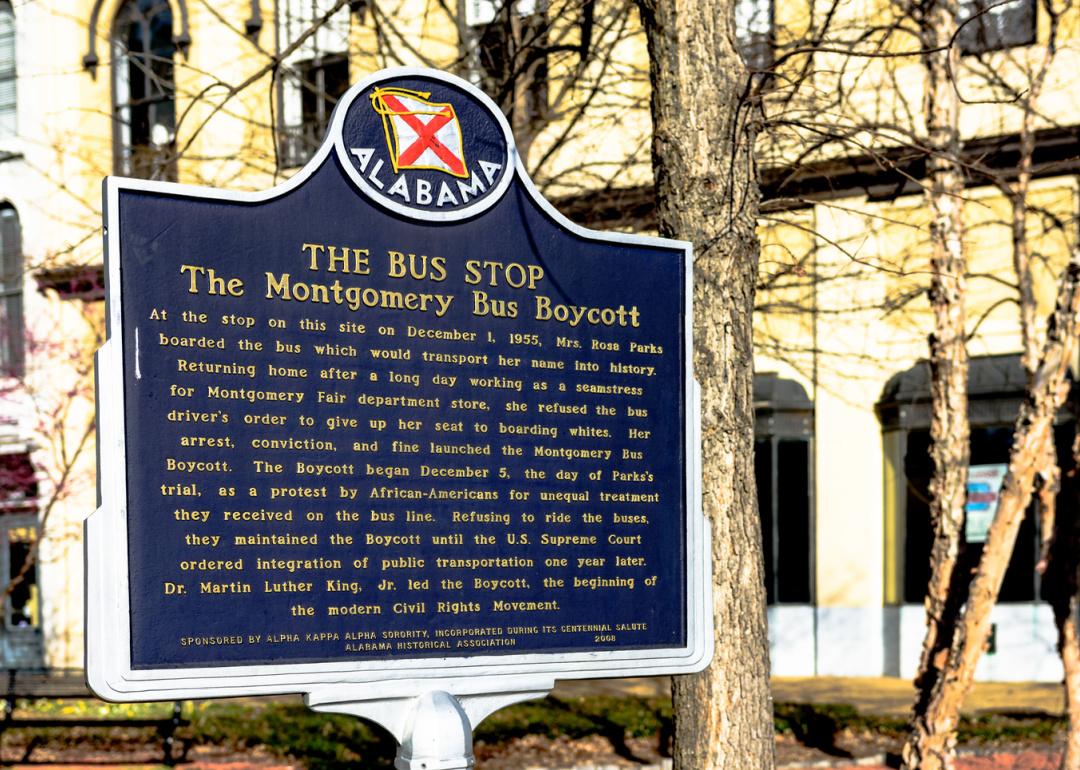
Explore historic sites commemorating Black history in Tennessee
Explore historic sites commemorating Black history in Tennessee
The legacies of influential Black Americans have not always been acknowledged, so it's not uncommon that modern-day residents may overlook the historic sites of their own cities.
While some historical Black figures in the U.S. are more well-known than others, there are in fact thousands of people dating back generations to 17th-century slavery who left traces of their visions and impacts all across the country. Whether prominent figures such as Robert Abbott, who founded one of the largest African American newspapers in the country, or more under-the-radar originators such as Obrey Wendell Hamlet, who cultivated unique vacation experiences in the Rocky Mountains, one thing's for certain: There is far more uncharted Black history in this country than charted.
Stacker identified historic sites commemorating Black history across 47 states, using the National Register of Historic Places. North Dakota, Vermont, Hawaii, and Wyoming did not have Black historic sites listed on the registry. While some states, especially in the South, are home to many sites central to the civil rights movement, Stacker listed the total sites in every state and the names of three historic sites where available. You can visit the full registry of 232 historic sites and explore the Civil Rights Trail to learn about additional locations across the U.S.
Read on to explore and learn about the historic sites celebrating Black history in your state, or read the national story here.
Tennessee by the numbers
- Sites commemorating Black history: 118 (7 with state significance, 9 with national significance)
- Woodland-Scarboro Historic District (Oak Ridge)
- Fisk University Historic District (Nashville)
- W. E. Palmer House (Henning)
Fisk University, founded in 1866, is a historically Black university and is the oldest establishment of higher learning in Nashville. In honor of the institution's historical significance, the university's 47-acre campus was listed in the National Register of Historic Places in 1978. Fisk University Historic District consists of architectural gems such as Jubilee Hall, the oldest and first academic structure on campus, Carnegie Hall, and the Carl Van Vechten Gallery.
Continue reading to see which sites commemorate Black history in other states in your area.
Alabama
- Sites commemorating Black history: 106 (24 with state significance, 19 with national significance)
- Tabernacle Baptist Church (Selma)
- Sixteenth Street Baptist Church (Birmingham)
- Macon County High School (Notasulga)
Tabernacle Baptist Church in Selma was designed in the 1920s by an African American architect named David T. West, who was also a church member. The church was the location for the first mass meeting of the voting rights movement, which consisted of 300 attendees.
Arkansas
- Sites commemorating Black history: 67 (15 with state significance, 4 with national significance)
- Centennial Baptist Church (Helena)
- Green House (Little Rock)
- Lake Nixon (Little Rock)
Dr. Elias Camp Morris, born into slavery in 1855, became a leading figure in Arkansas' Black community. Morris was the pastor of Centennial Baptist Church in the city of Helena, which served as the headquarters of the National Baptist Convention where Morris was president. He also played a crucial role in the Arkansas Republican Party.



